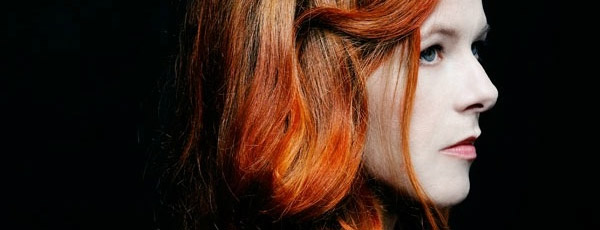
Tracks
Neko Case: "Night Still Comes"
from The Worse Things Get, the Harder I Fight, the Harder I Fight, the More I Love You (Anti-; 2013)
By Robin Smith | 21 August 2013
Before I talk about “Night Still Comes” the song, it feels important to breathe in “Night Still Comes” the video. In the way most music videos are, it’s technically an afterthought, acting out a logical conclusion to Neko Case’s lyrical rumination on how life passes like the day does. Such inevitability is foreseen by the song; this is just a frame-by-frame win for the law of physics. Case’s prediction comes true—in spite of every solution, from “drugs” to “tools,” the night will chase you down—and she literalises it for our eyes. Look closer, though, and the fears and panic attacks written into that prediction come out, a reminder that the most rational knowledge is defeated by what it obscures. The video then becomes as much an emotional reaction as anything, a picture of the night set to music that’s afraid of the dark.
“Night Still Comes” takes place once the night has crept in, its video a depiction of the city, but concentrated on the colour of the sky. The setting isn’t all that relevant to the effect; I feel like having specific information about where Case’s people shot it is unimportant to my understanding of what’s happening. Like that placid Arcade Fire video about a suburban war, both figurative and literal, the landscape feels disturbingly nameless, as if it’s been quarantined. People stay in their homes under threat of curfew while the phone rings off the hook, or else they drive by with heads down, diminished into a view from the end of a deserted pavement. The person behind the camera–the eye that watches an unmoved city move, just a little–is the only citizen who gets to see it at night.
The focus of “Night Still Comes” is distilled the same in sound and visuals. Around the edges the video looks wobbly, a result of the kind of piss-poor camerawork I’d do with my own fidgety hands. Its decisions are so specific, though; they betray the kind of secret precision Case’s lyrics carry, with close-ups on exit signs and buildings, or a shot of a trolley passing by with no one pushing it (another sign of the ghostly cloak the night-time wears). The streetlights and window reflections blur harshly, but the scene shines in the dark. Case’s song is the same, shaken around the edges, its rhymes accentuated with such clarity as to be jarring. They initially sound clunky, forced together; the song first marries “slow” with “pharaoh” and goes from there, meshing together Case’s life story with an ancient one as if they collapse into the same black hole. Listen to the chorus and the lyrics start to sound natural in retrospect, like a sad, overwhelmed history: “Catch a falling star / Because you can’t hold it.” Case moves from the first person to the second with such confidence in her conviction you’d think we were all facing our end together.
I see Case’s music video as really good pathetic fallacy. Its song feels tied to it, the exhale a person makes among those scenes. The indelible harmonies Case brings in on her choruses sound specifically like night-time harmonies, your own good/bad angels on a late-night stroll. It wouldn’t work with the bustle of a working day. Guitar twangs are spread thinly across the song’s intro, introducing the city like it’s always been covered over like this. “Night Still Comes” has all the self-absorbing drama of being on your own but for the occasional car zipping by, when the tension’s high enough for the moment to matter, but not enough to wake up the neighbourhood. Which explains the drumming: it’s quiet and it doesn’t intrude on the song’s incredible vocal showboating, but it’s still forceful, and still able to erupt.
“Night Still Comes” finds ambiguity in a moment that’s totally explicable. Aesthetically, it’s crystal-clear, led by a the smooth voice of an alt-country singer who wants you to hear every letter of every syllable—or leaves them out so you notice—and backed by musicians who use their instruments with as much clarifying intent. It’s a spaciously produced, generously performed song, basically, but one with lines like “I revenged myself all over myself” and “If I puked up some sonnets, would you call me ‘a miracle’?”. The actions are circular, the questions rhetorical, and they amount to little that can be held. Case’s night is relentless and disturbing, and the fact she saw it coming helped satisfy pretty much nothing.





